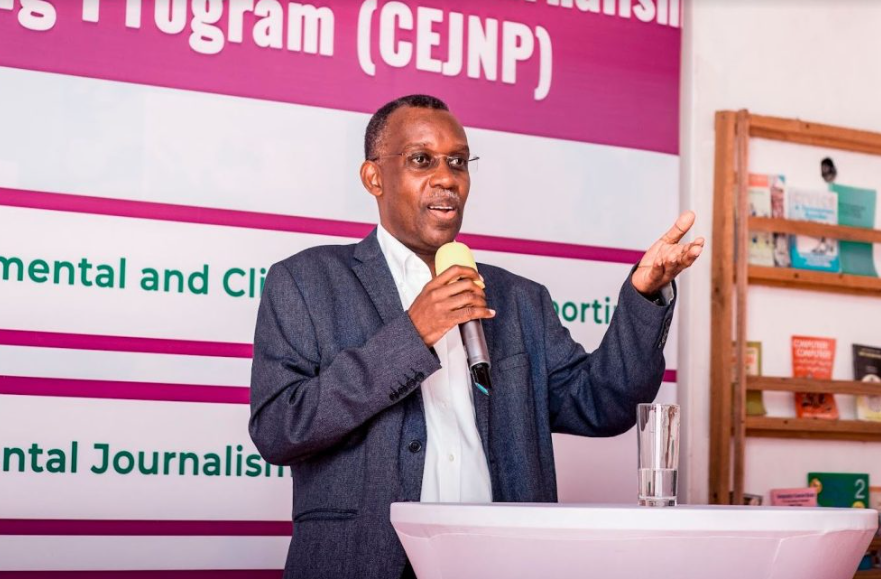Dar es Salaam. Environmental sanitation stakeholders have called for establishment of eco-systems for management of solid waste in the country.
They have pointed out that the main reasons solid waste has become a problem is non-enforcement of environmental laws, shortage of recycling experts, a lack of accurate data on waste collection and weak management throughout the entire chain.
These issues can easily be executed if there is framework to guide their implementation.
The stakeholders suggested close cooperation between the government and the private sector in waste management and formulation of regulations on waste management.
Such regulations should hold manufacturers accountable for controlling the spread of waste resulting from their products.
They noted for instance that producers of plastic bottles and bags should be tasked to ensure that the streets are free from used plastic bottles and bags.
The recommendations were made recently in Dar es Salaam during a meeting that brought together leaders from all the municipal councils in the region, the Vice President’s Office, the President’s Office for Regional Administration and Local Government (TAMISEMI), the National Environmental Management Council (NEMC), the private sector, university lecturers and waste collectors. The meeting was organized by the Human and Environment Development Organization (HUDEFO).

The NEMC Chief Environment Officer, Engineer Boniface Kyaruzi, said directive in the environmental law of 2004 that waste to be separated at home for recycling and manufacturing new products is not observed.
He stated that this result of municipalities and local leaders failure to fulfill their supervisory duties.
He said approximately 75 percent of household waste is organic, which can be processed into insect food and fertilizer, while plastic waste can be turned into products like decorations and tiles.
If this is implemented as the law directs, only a small amount of waste would end up in the dumpsite.
He said that even those given the responsibility to manage environmental sanitation in municipalities lack sufficient practical knowledge of waste management, as many are hired directly from universities where they have only studied theory and not practical.
“Moreover, there are no accurate statistics on the waste produced, collected, taken to the dumpsite or lesft to scatter on the streets. This is because we rely on foreign research instead of conducting it ourselves,” he said.
He expressed surprise that recycling industries complain of a lack of raw materials while hundreds of tonnes of organic and plastic waste is being dumped on a daily basis.
He said it is time for the country to move away from the dependency mindset of using dumpsites for waste disposal and instead focus on recycling so that waste is directed there, benefiting citizens economically.
He also suggested that the government work closely with the private sector and ensure it provides a conducive environment for it to operate effectively.
“There is also a need to increase experts and review university curricula to improve recycling courses so as to produce skilled professionals,” he suggested.
For his part, Prof Hamudi Majamba from the University of Dar es Salaam said plastic waste has increased in streets because the law does not burden bottle manufacturers to ensure that the bottles do nto end in streets after use.
He suggested drafting regulations that will hold manufacturers accountable for management of the bottles after their use.

A journalist from Mwananchi newspaper, Halili Letea, while researching his article on the growing waste problem in markets in the region, found that there was no cooperation between municipalities and market leaders, leading to poor waste management.
He said this situation damages the image and status of the markets, causing frequent diseases among traders and depriving the council of revenue.
John Meena, an Environment Officer from Temeke Municipality, admitted that awareness and understanding of waste recycling remain a challenge to many citizens, contributing to a lot of waste going to the dumpsite despite the presence of recycling facilities.
He stated that the municipality collects 1,494 tonnes of waste per month, of which 1,166 tonnes, or 78 percent, are taken to the dump site, and only 22 percent are recycled.
Hawa Mwechaga, the Coordinator for Environment and Climate Change from TAMISEMI, said they are preparing a mid-level strategy, which will identify priority areas on waste management chain to enable the community realise how they can use waste as source of income.
Martha Molel, Chairperson of the Dar es Salaam Waste Pickers Network (MTAWADA), said they face many challenges, including assault and sexual violence while collecting plastic waste from those with malicious intent


